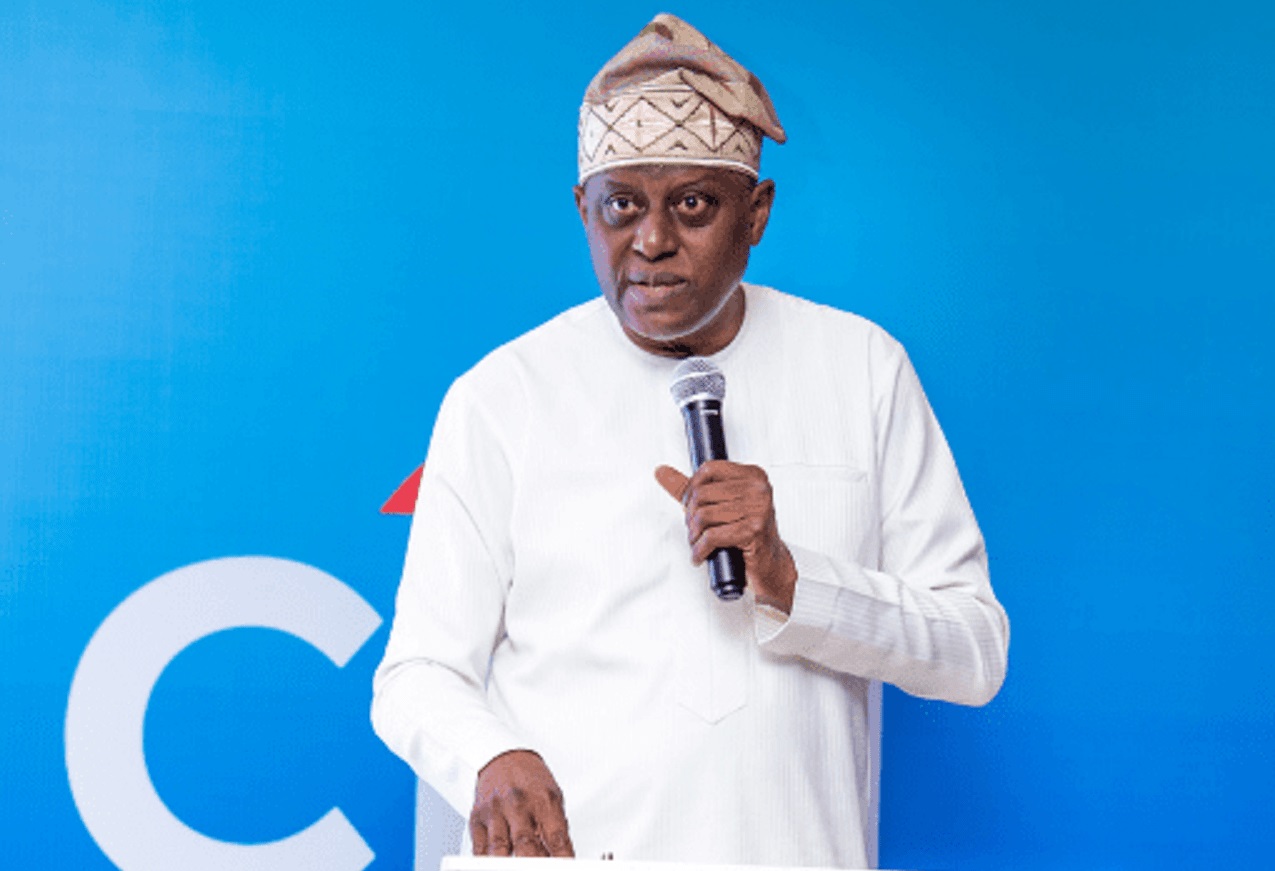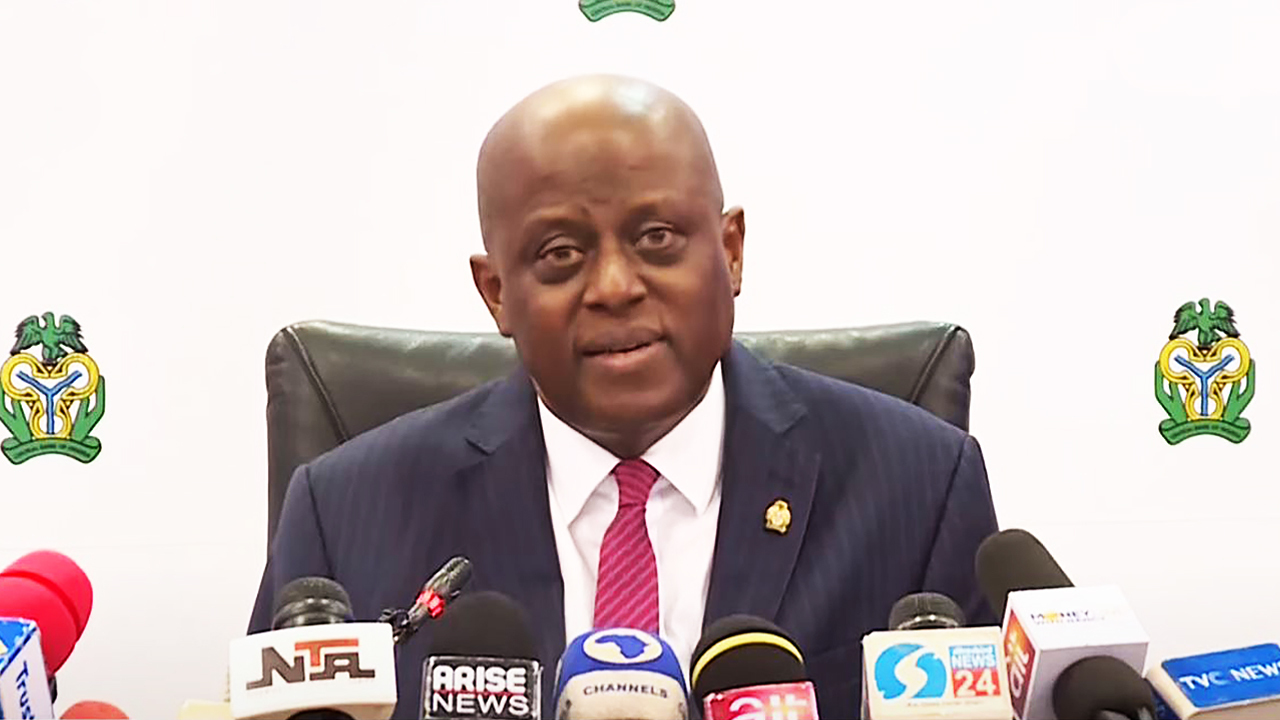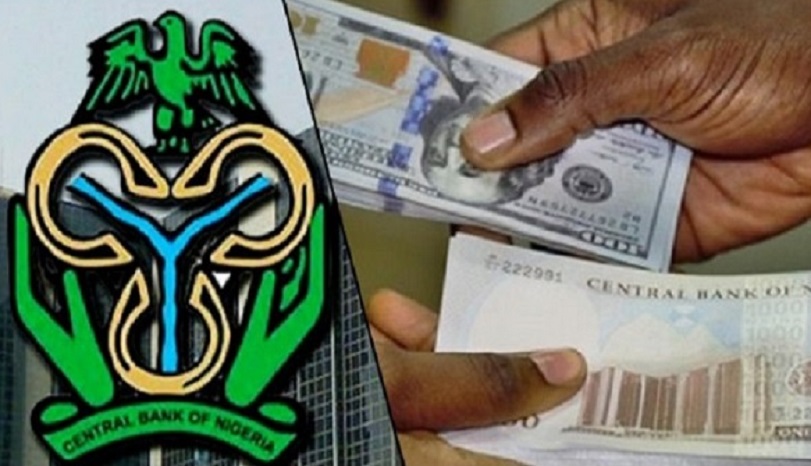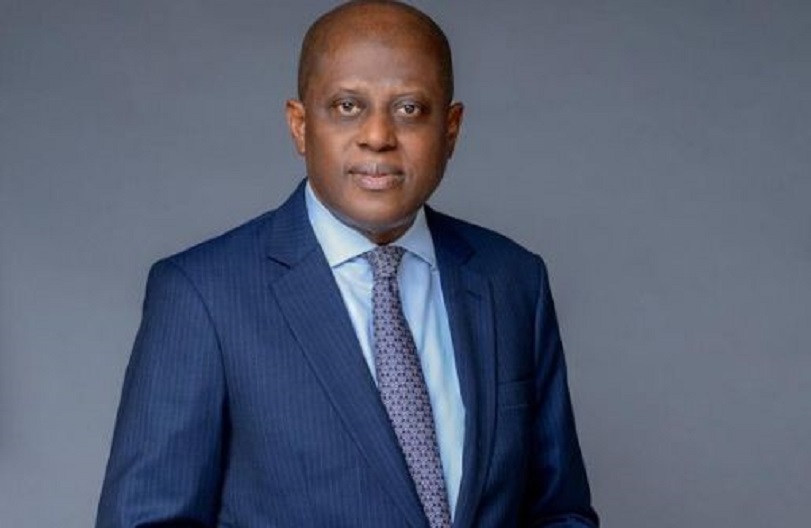Economy
Another Economic Crisis Looms over CBN “Reckless Funding of FG”

By Premium Times
Just when Nigerians are celebrating the exit of the economy from recession, a report has warned that another trouble is lurking around the corner.
According to Premium Times, a massive and clearly illegal multi-source funding of the federal government by the CBN could drag the Nigerian economy to its knees, experts familiar with domestic monetary conditions and current happenings at the CBN have warned.
The central bank had, in the last one year, pumped trillions of naira into illegally financing the federal government under different guises: from mass purchase of treasury bills to humongous direct financing of the government through the “window account”.
Insiders say the apex bank is “creating money” to “finance a government that is broke and which does not have economic vision,” in what one of them called a “desperate move by the central bank governor, Godwin Emefiele, to remain in office”.
A former governor of the CBN and a former deputy governor of the bank who spoke with PREMIUM TIMES were both alarmed by the long-term implications of such “direct and reckless financing of government” on inflation and other economic indices, including crowding-out the private sector from the domestic credit creation process.
The Alarming Transactions
The warning whistle was first blown at the last meeting of the CBN’s Monetary Policy Committee, held between July 24 and 25.
In the communiqué of the meeting published on Tuesday, members of the policy advisory committee expressed “concern over the increasing fiscal deficit estimated at N2.51 trillion in the first half of 2017 and the crowding out effect of high government borrowing.”
Some members of the committee, in their respective submissions captured in the 50-page report of the meeting, expressed reservations over the apex bank’s handling of key monetary and fiscal issues that may plunge the economy into a ditch.
However, it was an external member of the committee, Adedoyin Salami, who directly painted a gloomy picture of the extent of the government’s financing by the apex bank and other irregularities.
Mr Salami, an economist and faculty member with the Lagos Business School, literary took the CBN to the cleaners in his assessment of its monetary policy which, he warned, was pushing the country towards a serious economic crisis.
He criticised CBN’s “massive injections of cash” to the government, accusing the bank of serving as a “piggy bank” for the government, against its own rules.
“Monetary data shows a sharp rise in the extent of CBN financing of the government deficit,” he said.
From December 2016, according to the economist, the CBN had variously made cash available to the federal government running into trillions, mostly beyond legal thresholds.
He said the CBN’s claims on the federal government under the period amounts to N814bn, which is “twentyfold higher” than what the law permits.
Ironically, the claim of commercial banks, he said, “rose marginally by 0.4% to N4.6 trillion”.
Another route through which the CBN pumped money to the government, Mr Salami said, was via the bank’s N454 billion spending on purchase of government’s treasury bills, which he said, had risen by 30 percent.
The government’s overdrafts from the apex bank also rose to N2.8 trillion within the period, representing a five percent increase.
But the sharpest rise in the figures, according to Mr Salami, was in the government’s “mirror account” liabilities, which rose “from N3 billion at the end of 2016 to N1.5 trillion in April 2017”.
Authorities at the CBN are yet to contradict Mr Salami’s claims.
Illegalities
A look at the CBN Act 2007 show that the huge direct financing of the federal government is in direct contravention of clear provisions of the Act.
Although Section 38 (1) of the Act empowers the bank to grant “temporary advances to the Federal Government in respect of temporary deficiency of budget revenue” subsection 2 of the same section stipulates, “the amount of such advances outstanding shall not at any time exceed five per cent of the previous year’s actual revenue of the Federal Government”.
Additionally, subsection three of the section provides that such advances should be paid “as soon as possible and shall in any event be repayable by the end of the Federal Government financial year in which they are granted and if such advances remain unpaid at the end of the year, the power of the Bank to grant such further advances in any subsequent years shall not be exercisable, unless the outstanding advances have been repaid”.
By the estimated N6 trillion earned by the government last year, the CBN should have only granted advances to the federal government not exceeding N300 billion, representing five percent of the earnings.
Contracting Private Sector
The conduct of the government and the CBN, according to the economist, may, by limiting the organised private sector’s access to credit, have contributed to the dire straits in which the sector currently finds itself.
“We thus find ourselves at a point where government borrowing from the CBN is neutralised by raising the CRR of banks, thereby limiting private-sector access to credit,” he said.
“In other words, the private sector is deliberately “crowded-out”. It is ironic that the government, in need of tax revenues – having in the 1st half of the year accumulated its full-year deficit – is constraining the private sector from which the sorely needed revenues are to be derived.”
Sounding perplexed and perhaps frustrated, Mr Salami said, “Whilst I still wonder what the underlying economics is – I sincerely hopes it works!”
Desperate Measures
To cushion the impact of these mass and illegal financing of the federal government, experts say, the CBN has been scrambling to evolve policies that would counter the destructive effects of its actions.
Some of these measures, PREMIUM TIMES understands, include the regular pumping of forex into the foreign exchange market to cater for high demand due to the attendant rise in naira liquidity.
The apex bank, Mr Salami said, also carries out “special auctions” to help normalise banks’ Cash Reserve Ratios (CRR).
“To prevent the effect of continuous and massive injections of cash to fund the Federal Government showing up in sharply higher inflation and currency weakness, the Central Bank now applies “special auctions” Mr Salami said.
Apart from raising the CRR beyond the 22.5 percent approved rate, Mr Salami said, “the format of these “auctions” recall the dark days of “stabilisation securities”.
Mr Salami also flayed the bank’s “seeming haste to declare “victory” for “fragile” improvements in forex and inflationary statistics, saying the country is far from being out of the woods in some of those areas.
He lamented that “the most challenging of the present characteristics of the economy in Nigeria is the adoption of a quantitative easing stance by the management of the Central Bank”.
Another member of the MPC, Abdul-Ganiyu Garba, also faulted CBN’s monetary policies, accusing it of causing “contradiction or inconsistency problem”.
“The coexistence of high interest rate and growth in money supply are unnatural. Indeed, it generates a contradiction or inconsistency problem. Strong growth in money supply in all countries that adopted quantitative easing pushed down interest rates almost to zero,” he said.
Mr Garba, a professor, also indicted the bank for the significant distortions in “the forex market, the money market, the stock market and domestic prices” due to “strong growth in money supply in 2015 and 2016”.
A former deputy governor of the CBN and well-regarded economist who spoke to PREMIUM TIMES on condition of anonymity described the actions of the apex bank as “reckless” and beyond the parameters set by law.
He accused Mr Emefiele of “hauling cash” to the government in contravention of the set rules and statues of the apex bank.
“CBN governor is a banker and adviser to the government,” he said. “The bank is a monetary authority, not financial authority. Their role does not mean reckless lending to government,” he said.
According to him, the government and the CBN “are setting the economy for a big fall”.
He said both the government and the bank “need to take policy adjustment measures” if they want to change the position of things, otherwise “they will continue to create money which will lead to serious inflation”.
More Troubles
Apart from the huge advances it is illegally taking from the CBN, the federal government has also been ramping up a raft of local and foreign loans.
Another MPC member, Suleiman Barau, also sounded a note of warning on the implication of the payment of N760 billion as Paris Club refunds to states.
Mr Barau, a deputy governor of the CBN, added that the possibility of payment of more money to states in the name of the refunds could further complicate economic recovery.
“The whole idea underlying the deployment of the fund is not completely bad as it could stimulate growth in output in the long run.
“The reality, however, is that the impact of this type of injection on aggregate demand tends to precede the influence on aggregate supply and invariably stoke inflation in the short run. Besides, there is evidence of growing liquidity surfeit in the banking industry in the face of sluggish growth in credit particularly to the private sector.
“It is not unlikely that the current injection may complicate the liquidity surge with potential adverse impact to the foreign exchange markets,” he explained.
CBN Responds
This reporter’s efforts to reach CBN’s acting director of corporate communication, Isaac Okoroafor, for comments, on Sunday, were unsuccessful.
He also did not answer or return calls Monday morning. He however sent a text message requesting an SMS enquiry.
But as at the time of publishing this story, at 10 am on Monday, Mr Okoroafor was yet to respond to the text message enquiry sent to him.
He however responded about an hour later, asking rhetorically; “is it illegal for CBN to fund government activities?”
Reminded that such funding were far off the legal boundaries, he responded: “I can’t respond to rumours or speculation. All I want to say is that there’s no illegality in the advances CBN has made to the Federal Government.”
Optimistic Emefiele
However, in his personal statement contained in the MPC meeting report, the CBN governor, who is also chairman of the committee expressed cautious optimism on the economy.
He also acknowledged the effect of the government’s undue mopping of money from the system, although in a subtle and passing manner.
Mr Emefiele noted: “The growth in government credits due to expanded fiscal operations evokes the crowding-out of productive private sector in the short-run.
He however expressed optimism that “if the government succeeds in reducing the infrastructure deficit through its fiscal operation, I expect a favourable crowding-in of the private sector in the medium- to long-term.”
The CBN governor also blamed inflation and foreign exchange crisis on other factors other than he and the CBN’s roles.
“As I had noted earlier, the underlying deterrents include: foreign exchange scarcity (due to low crude oil receipts and inadequately diversified economy); constrained fiscal space; infrastructural bottlenecks; high energy prices; and depressed domestic demand (partly attributable to sizeable salary arrears owed to some civil servants),” he said.
Economy
FG Targets Credit Access For 50% Workers By 2030

By Adedapo Adesanya
The Vice President, Mr Kashim Shettima, inaugurated the Board of the Nigerian Consumer Credit Corporation (CREDICORP) and gave a 50 per cent access target for workers, saying consumer credit was critical to Nigeria’s ambition of becoming a one-trillion-dollar economy by 2030.
According to him, President Bola Tinubu established the CREDICORP to build a trusted credit infrastructure, provide catalytic capital to lower borrowing costs, and help Nigerians overcome long-standing cultural resistance to credit.
Speaking on Thursday in Abuja when he inaugurated the board on behalf of the President, the Vice President, in a statement by his spokesman, Mr Stanley Nkwocha, said that the quality of life of Nigerians cannot improve without closing the gap between access to capital and human dignity.
“A civil servant who earns honestly does not have to chase sudden wealth just to buy a vehicle, or save for ten years to buy one. A young professional should not remain in darkness simply because solar power must be paid for all at once,” the Vice President said.
VP Shettima disclosed that in just one year of operations, CREDICORP has disbursed over ₦37 billion in consumer credit to more than 200,000 Nigerians, with over half of them accessing formal credit for the first time.
The Vice President said the organisation was specifically tasked with building credit infrastructure to bridge the trust gap between lenders and borrowers, providing wholesale capital and credit guarantees through its portfolio company.
“Ultimately, these critical jobs of CREDICORP will enable access to consumer credit to at least 50 per cent of working Nigerians by 2030,” he said.
The Vice President explained that the new board’s role was not ceremonial as they are custodians of the organisation’s mission, adding that the long-term strength of the institution would depend on their “vigilance, integrity, sacrifice, and commitment.”
He directed Board members to uphold Public Service Rules, the Board Charter, and all applicable governance frameworks, warning that accountability and stewardship of public resources were non-negotiable.
The Chairman of CREDICORP, Mr Aderemi Abdul, expressed appreciation to President Tinubu for his vision behind the formation of CREDICORP and for the confidence reposed in them, noting that the establishment of the corporation marked an important step towards strengthening the nation’s financial architecture.
He assured President Tinubu that the board understands its responsibility and will guide the institution to deliver meaningful benefits to Nigerians.
For his part, Mr Uzoma Nwagba, Managing Director/CEO of CREDICORP, recalled watching President Tinubu say 20 years ago that consumer credit is one of the major tools that will improve the lives of Nigerians.
He noted that over the past 18 months, the institution has benefited more than 200,000 Nigerians, including students.
He assured that the presidential vision behind CREDICORP would not be taken lightly, as the team considers their appointments a unique, once-in-a-lifetime opportunity.
Other members of the board inaugurated include Mrs Olanike Kolawole, Executive Director, Operations; Mrs Aisha Abdullahi, Executive Director, Credit and Portfolio Management; Mr Armstrong Ume-Takang (MD, MoFI), Representative of MoFI; Mrs Bisoye Coke-Odusote (DG, NIMC), Representative of NIMC; and Mr Mohammed Naziru Abbas, Representative of FMITI.
Others are Mr Marvin Nadah, Representative of FCCPC; Mrs Chinonyelum Ndidi, Representative of the Federal Ministry of Finance; Mr Mohammed Abbas Jega, Independent Director; and Mrs Toyin Adeniji, Independent Director.
Economy
NASD OTC Exchange Rallies 0.23% as Nipco Leads Six Advancers

By Adedapo Adesanya
Six price gainers helped the NASD Over-the-Counter (OTC) Securities Exchange retain its stay in green territory after a 0.23 per cent appreciation on Thursday, February 26.
The price gainers were led by Nipco Plc, which added N25.00 to close at N278.00 per share compared with the previous day’s N253.00 per share, NASD Plc rose by N5.13 to N56.41 per unit versus N51.28 per unit, FrieslandCampina Wamco Nigeria Plc expanded by N2.24 to N102.44 per share from N100.00 per share, Afriland Properties Plc grew by 88 Kobo to N18.88 per unit from N18.00 per unit, 11 Plc increased by 35 Kobo to N277.00 per share from N276.65 per share, and Lagos Building Investment Company (LBIC) Plc gained 27 Kobo to close at N3.75 per unit versus N3.48 per unit.
On the flip side, Central Securities Clearing System (CSCS) Plc lost N1.75 to sell at N68.25 per share versus N70.00 per share, and Geo-Fluids Plc depreciated by 2 Kobo to N3.25 per unit from N3.27 per unit.
The weight of the advancers fortified the NASD Unlisted Security Index (NSI) by 9.21 points to 4,034.46 points from 4,025.25 points, and the market capitalisation soared by N5.51 billion to N2.413 trillion from Wednesday’s N2.408 trillion.
Yesterday, the transaction value jumped by 18.8 per cent to N102.8 million from N80.7 million, and the number of deals surged by 18,8 per cent to 38 deals from 32 deals, while the transaction volume went down by 84.9 per cent to 1.3 million units from 8.7 million units.
At the close of business, CSCS Plc was the most traded stock by value (year-to-date) with 34.2 million units worth N2.04 billion, followed by Okitipupa Plc with 6.3 million units sold for N1.1 billion, and Geo-Fluids Plc with 122.1 million units valued at N478.2 million.
Resourcery Plc remained as the most traded stock by volume (year-to-date) with 1.05 billion units exchanged for N408.7 million, trailed by Geo-Fluids Plc with 122.1 million worth N478.2 million, and CSCS Plc with 34.2 million units traded for N2.04 billion.
Economy
Naira Down Again at NAFEX, Trades N1,359/$1

By Adedapo Adesanya
The Naira further weakened against the Dollar in the Nigerian Autonomous Foreign Exchange Market (NAFEX) for the fourth straight session this week on Thursday, February 26.
At the official market yesterday, the Nigerian Naira lost N3.71 or 0.27 per cent to trade at N1,359.82/$1 compared with the previous session’s N1,356.11/$1.
In the same vein, the local currency depreciated against the Pound Sterling in the same market window on Thursday by N8.27 to close at N1,843.23/£1 versus Wednesday’s closing price of N1,834.96/£1, and against the Euro, it crashed by N8.30 to quote at N1,606.89/€1, in contrast to the midweek’s closing price of N1,598.59/€1.
But at the GTBank forex desk, the exchange rate of the Naira to the Dollar remained unchanged at N1,367/$1, and also at the parallel market, it maintained stability at N1,365/$1.
The continuation of the decline of the Nigerian currency is attributed to a surge in foreign payments that have outpaced the available Dollars in the FX market.
In a move to address the ongoing shortfall at the official window, the Central Bank of Nigeria (CBN) intervened by selling $100 million to banks and dealers on Tuesday.
However, the FX support failed to reverse the trend, though analysts see no cause for alarm, given that the authority recently mopped up foreign currency to achieve balance and it is still within the expected trading range of N1,350 and N1,450/$1.
As for the cryptocurrency market, major tokens posted losses over the last 24 hours as traders continued to de-risk alongside equities following Nvidia’s earnings-driven pullback, with Ripple (XRP) down by 2.7 per cent to $1.40, and Dogecoin (DOGE) down by 1.6 per cent to $0.0098.
Further, Litecoin (LTC) declined by 1.3 per cent to $55.87, Ethereum (ETH) slipped by 0.9 per cent to $2,036.89, Bitcoin (BTC) tumbled by 0.7 per cent to $67,708.21, Cardano (ADA) slumped by 0.6 per cent to $0.2924, and Solana (SOL) depreciated by 0.4 per cent to $87.22, while Binance Coin (BNB) gained 0.4 per cent to sell for $629.95, with the US Dollar Tether (USDT) and the US Dollar Coin (USDC) closing flat at $1.00 each.
-

 Feature/OPED6 years ago
Feature/OPED6 years agoDavos was Different this year
-
Travel/Tourism10 years ago
Lagos Seals Western Lodge Hotel In Ikorodu
-

 Showbiz3 years ago
Showbiz3 years agoEstranged Lover Releases Videos of Empress Njamah Bathing
-

 Banking8 years ago
Banking8 years agoSort Codes of GTBank Branches in Nigeria
-

 Economy3 years ago
Economy3 years agoSubsidy Removal: CNG at N130 Per Litre Cheaper Than Petrol—IPMAN
-

 Banking3 years ago
Banking3 years agoSort Codes of UBA Branches in Nigeria
-

 Banking3 years ago
Banking3 years agoFirst Bank Announces Planned Downtime
-

 Sports3 years ago
Sports3 years agoHighest Paid Nigerian Footballer – How Much Do Nigerian Footballers Earn


















